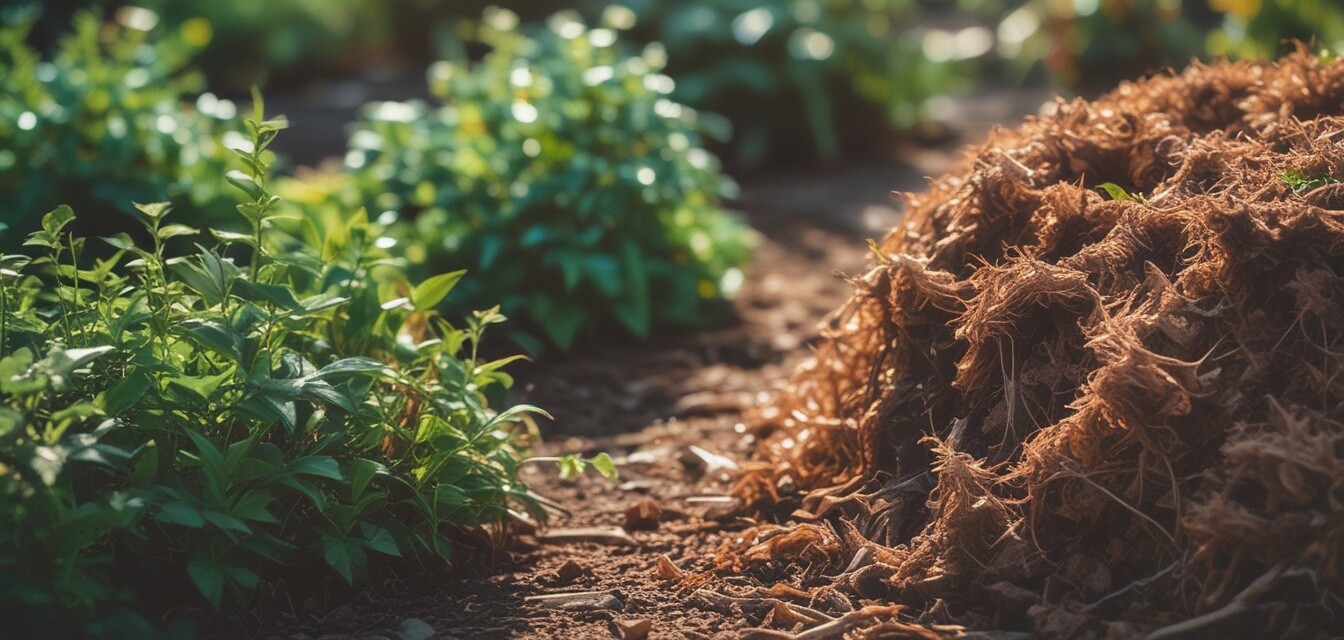
Choosing the Right Mulch for Your Garden
Key Takeaways
- Mulch enhances soil moisture retention, temperature regulation, and weed suppression.
- Different types of mulch provide various aesthetic and practical benefits.
- Consider your gardening needs and the specific plants you’re using when selecting mulch.
- Organic options decompose over time, enriching the soil, while inorganic options provide longevity.
- Investing in premium mulch can elevate your garden's health and appearance significantly.
When it comes to gardening, choosing the right mulch is essential for maintaining a vibrant garden. Mulch serves various purposes, including conserving moisture, suppressing weeds, and improving the overall aesthetics of your garden. In this guide, we’ll explore the different types of mulch available and how to select the right one for your gardening needs.
What is mulch?
Mulch is a layer of material applied to the surface of soil in gardens and landscape beds. It can be organic, such as shredded bark or straw, or inorganic, like stones or rubber. Each type of mulch has its unique benefits, making it essential to understand what works best for your specific garden objectives.
Types of mulch
Understanding the various types of mulch can help you make informed choices. Here’s a breakdown of the most popular types of mulch:
| Type of Mulch | Description | Benefits | Best Uses |
|---|---|---|---|
| Wood chips | Natural wood chips from various trees | Long-lasting, good for moisture retention | Flower beds, shrub areas |
| Straw | Dry stalks left over after harvesting | Lightweight, easy to spread, good for gardens | Vegetable and flower gardens |
| Shredded leaves | Leaves that are shredded into smaller pieces | Rich in nutrients, decomposes quickly | Annual plants, composting |
| Rubber mulch | Recycled rubber products | Durable, won’t decompose, great for aesthetics | Playgrounds, paths, landscape beds |
| Rock or gravel | Inorganic materials like stones and pebbles | Good drainage, long-lasting, low maintenance | Paths, rock gardens, xeriscaping |
Benefits of using mulch
Using mulch in your garden comes with a multitude of benefits, including:
- Moisture retention: Mulch helps keep the soil moist by reducing evaporation.
- Weed suppression: A good layer of mulch will inhibit weed growth.
- Soil temperature regulation: Mulch acts as an insulator for soil, keeping it warmer in winter and cooler in summer.
- Soil health improvement: Organic mulches decompose and enrich the soil with nutrients.
- Aesthetic appeal: Mulch can visually enhance your garden’s landscape.
How to choose the right mulch for your garden
When choosing mulch, consider the following factors:
- Type of plants: Different plants have varying needs, so choose mulch that caters to specific plant requirements.
- Climate: Your regional climate will impact the effectiveness of different mulches. For hot climates, organic options can help retain moisture.
- Size of garden: Consider if you need bulk mulch or smaller quantities for specific areas.
- Budget: Determine how much you’re willing to invest in mulch; organic options may need to be replenished more often.
- Aesthetics: Think about how the mulch will look in your garden design.
Applying mulch effectively
To get the most out of your mulch, follow these tips:
Tips for applying mulch
- Apply mulch in the spring to help soil retain moisture as temperatures rise.
- Use a layer of 2-4 inches of mulch for optimal coverage.
- Avoid piling mulch against plant stems or tree trunks to prevent rot and disease.
- Refreshing organic mulch once a year can ensure your plants get the nutrients they need.
- Monitor your mulch for signs of compaction or weed growth and replenish as necessary.
Where to buy quality mulch
When investing in mulch, consider purchasing from reputable suppliers. Look for organic options and high-quality materials for the best results. You can explore premium gardening materials at:
- Composting & Waste Management
- Garden Tools
- Greenhouses & Plant Protection
- Outdoor Power Equipment
- Premium Outdoor Furniture
Conclusion
Choosing the right mulch for your garden can significantly enhance its health, appearance, and overall functionality. By assessing your specific gardening needs and understanding the various types of mulch available, you can make an informed decision that will serve your garden well for years to come. Investing in quality mulch is a simple yet effective way to elevate your outdoor space and ensure your plants thrive.
Pros
- Enhances soil health and appearance
- Improves moisture retention
- Suppression of weeds
- Variety of options to meet specific needs
Cons
- May need replenishing (especially organic types)
- Some types can be more expensive
- Can harbor pests if not maintained well
- Inorganic types won’t enrich soil